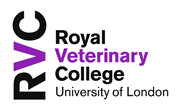RVC Supervisor(s): Dr Virginia Marugan-Hernandez, Professor Fiona Tomley
Non RVC Supervisor: Dr Johannes Dessens (LSHTM)
Department: Pathobiology and Population Sciences
Project Summary:
Apicomplexan parasites are widespread protozoan parasites of animals. The phylum Apicomplexa contains thousands of species and includes major pathogens of humans, domestic animals and livestock. For example, malaria (caused by Plasmodium spp.) causes nearly half a million human deaths per annum globally, while chicken coccidiosis (caused by Eimeria spp.) has an estimated global economic cost of >10 billion US$ per annum through losses in poultry production and treatment.
Plasmodium and Eimeria have evolved very different life cycles, nonetheless, their monophyletic ancestry has conserved many Apicomplexa-specific cellular structures and molecular processes involved in cell division, invasion, and motility, as well as two unique parasite structures: the 'crystalloid' of Plasmodium and the 'refractile body' (RB) of Eimeria. The crystalloid and RB share similar features such as their size and number: two crystalloids and RBs are found, which merge into a single organelle during transition into oocyst and schizont, respectively.
In recent years, studies in P. berghei have provided strong evidence for a spatial and functional link between the crystalloids and a family of LCCL domain-containing proteins (LAPs) that are essential for sporogony. The RBs are found exclusively in the sporozoite and young primary schizont life cycle stages of Eimeria and their roles in parasite development remain unresolved. Eimeria spp. encode several LAP orthologues and this project will test the hypothesis that Eimeria LAPs localise in the RB and are involved in the function of this organelle.
Requirements
Essential
- Must meet our standard PhD entry requirements
- Applicants must hold a degree in a relevant subject to develop the project (e.g. biology, biochemistry, infectious diseases, immunology, veterinary medicine, bioveterinary sciences).
Desirable
- A master’s degree or equivalent qualification or other evidence of research skills and experience is preferred but not essential.
Eventual work with animals (chickens) will be necessary for the generation of wild type and transgenic Eimeria stocks.
If you are interested in applying for this position, please complete our online applciation form by following the link below. Please use your personal statement to demonstrate any your background in cell/molecular biology, parasitology, genetics or equivalent disciplines. We are looking for a highly motivated and enthusiastic PhD student who can show their commitment, team working and the ability to take responsibility for their own project.
The student will receive training from the supervisors at RVC in the different techniques needed for the development of the research programme. Furthermore, the student will benefit from the RVC's transferable skills training programme. This consists of a wide range of courses that will help them to analyse, understand and communicate their research.
Funding
This is a 3 year fully-funded studentship, covering tution fees and stipend. This studentship is open to applicants eligible for "Home" fees. International applicants are welcome to apply but must be able to fund the difference between "Home" and "Overseas" tuition fees.
Please note that EU/EEA and Swiss national students may no longer be eligible to pay the “home” rate of tuition fees nor claim any financial support for their studies dependent on personal circumstances (including immigration status and residence history in the UK). To help determine whether you would be eligible for home fees please see the UKCISA's 'Who pays 'home' fees for higher education in England?' guide found here.
The studentship will commence 3rd October 2022.
How to Apply
For more information on the application process and English language requirements see please see How to Apply.
Interviews will take place March 2022.
We welcome informal enquiries - these should be directed to Dr Virginia Marugan-Hernandez: [Email Address Removed].
Deadline: Sunday 6th February 2022

 Continue with Facebook
Continue with Facebook



